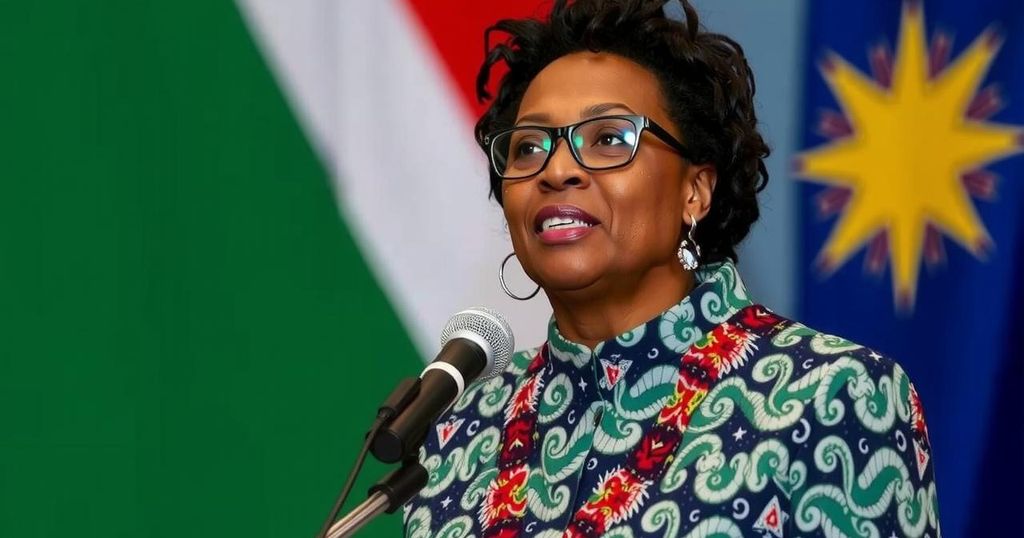World news
2024 ELECTIONS, AFRICA, AFRICAN NATIONAL CONGRESS, BRITAIN, DEMOCRACY, ELECTIONS, ELECTORAL PROCESS, GOVERNANCE, GOVERNMENT, INDEPENDENT PATRIOTS FOR CHANGE, IPC, ITULA, NANDI - NDAITWAH, NET, NEW INDEPENDENT PATRIOTS FOR CHANGE, NEWCASTLE, SOUTH AFRICA, SOUTHERN AFRICA, SWAPO
Stella Nguyen
0 Comments
Namibia Elects Its First Female President Amidst Controversy
Namibia has elected its first female president, Netumbo Nandi-Ndaitwah, winning 57% of the vote amidst claims of electoral irregularities by opposition parties. Nandi-Ndaitwah, a long-time member of the ruling Swapo party, emphasizes stability in her victory. However, the election results are contested due to technical voting issues, raising questions about the legitimacy of the outcome.
Namibia has made history by electing its first female president, Netumbo Nandi-Ndaitwah, who secured 57% of the votes in a recent election. This result extends the ruling Swapo party’s long-standing dominance, which has been in power for 34 years since the country’s independence from apartheid South Africa in 1990. In her victory speech, Nandi-Ndaitwah emphasized that “the Namibian nation has voted for peace and stability.” Her ascension to the presidency follows her recent promotion to vice-president after the passing of President Hage Geingob.
However, the election has faced contention, with opposition parties disputing the results due to various technical difficulties experienced during voting. These issues included a shortage of ballot papers, prompting electoral authorities to extend the voting period to Saturday, a move which opposition groups have deemed illegal. Participant Panduleni Itula, who received 25.5% of the vote, indicated a decline in support compared to previous elections.
Despite the opposition’s claims, Nandi-Ndaitwah’s election signifies a shift, as she is perceived as a capable leader with a history in the liberation movement. Her administration’s stability stands in contrast to recent electoral challenges faced by other liberation parties within the region, including the African National Congress in South Africa and the government in Botswana. Nandi-Ndaitwah’s proven track record as a diplomat and her distance from corruption scandals has led to her being viewed positively by the electorate.
Namibia, a country that gained independence from South Africa’s apartheid regime in 1990, has been governed by the Swapo party since its liberation. The recent election of Netumbo Nandi-Ndaitwah as the first female president reflects a significant milestone in the country’s political landscape. Her experience as vice-president and foreign minister positions her as a reliable leader within a party that has faced corruption allegations in the past. As elections in southern Africa have increasingly seen ruling movements punished by voters, Nandi-Ndaitwah’s success represents a departure from this trend, showcasing the unique political dynamics in Namibia.
The election of Netumbo Nandi-Ndaitwah as Namibia’s first female president marks a transformative moment in the nation’s political history. While the Swapo party retains its power, the election faced serious challenges and is met with opposition dissent. Nandi-Ndaitwah’s leadership will be closely observed as she seeks to navigate the complexities of governance while commanding a divided political landscape. The outcome suggests that, despite regional trends, Namibia might be defying a broader pattern of voter discontent with long-standing incumbents in southern Africa.
Original Source: www.theguardian.com




Post Comment